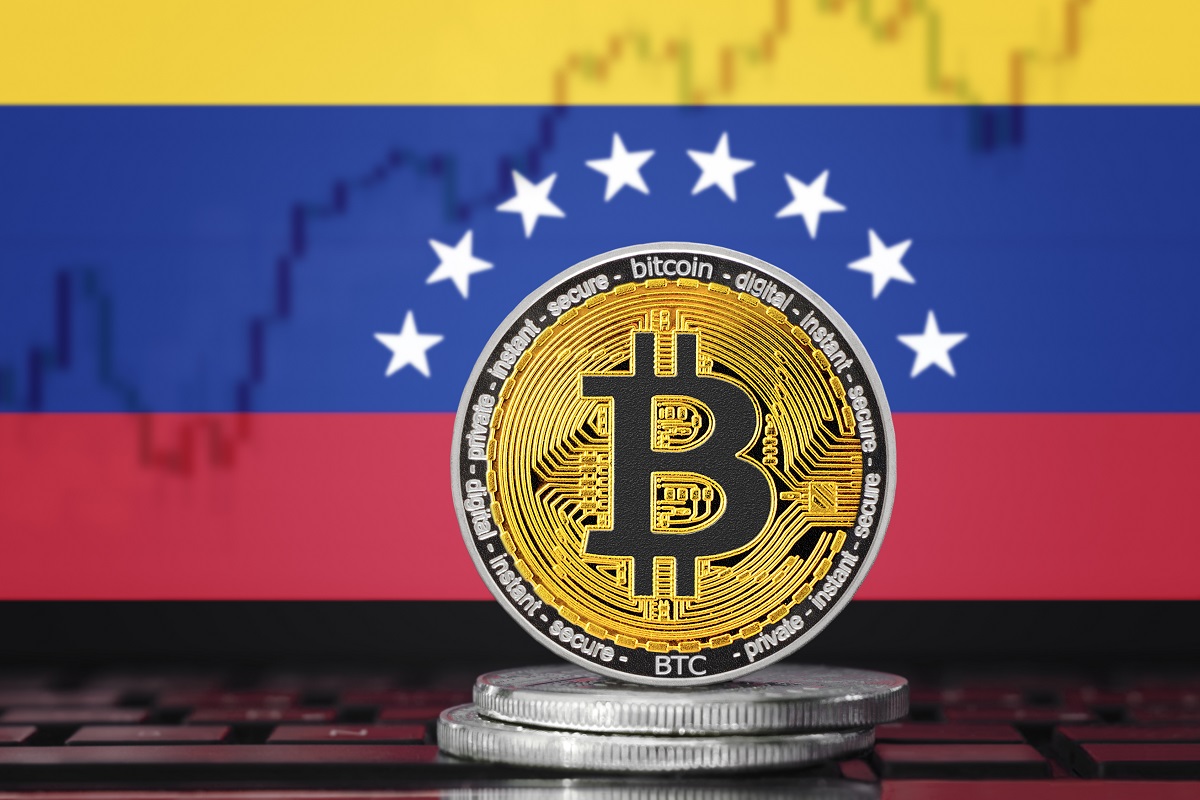The economic crisis in Venezuela has led to an unprecedented rise in Bitcoin usage, offering a unique lens to examine the intersection of cryptocurrency and economic stability. Bitcoin could be the future of economies of countries across the globe. You can still learn about investing in crypto at immediate-circuit.com and start investing wisely.

The Rise of Bitcoin in Venezuela
In this landscape of economic turmoil, Bitcoin emerged not just as a novel technology but as a lifeline for many Venezuelans. The decentralized nature of Bitcoin, free from the control of any government or financial institution, presented a unique solution for those seeking to preserve their savings from the rapidly depreciating Bolivar. This adoption was further accelerated by the ease of digital transactions, which enabled Venezuelans, even in remote areas, to access global financial networks.
The appeal of Bitcoin in Venezuela can be understood through its fundamental attributes. Unlike the Bolivar, which has been plagued by government mismanagement and excessive printing, Bitcoin offers a finite supply, ensuring its scarcity and potential to retain value. This feature, coupled with its global acceptance, has made it an attractive alternative for both saving and transactions.
Moreover, the use of Bitcoin in Venezuela has been catalyzed by grassroots movements and community initiatives. Local groups have been instrumental in educating the populace about the benefits of cryptocurrency, and small-scale entrepreneurs have started accepting Bitcoin, further embedding it into the local economy. This organic growth of Bitcoin usage stands as a testament to its practicality and relevance in the face of Venezuela’s economic crisis.
However, the rise of Bitcoin in Venezuela is not without its challenges. The volatile nature of cryptocurrency prices, technical barriers to entry, and the lack of widespread understanding of digital currencies remain significant hurdles. Despite these challenges, the growing reliance on Bitcoin in Venezuela underscores a crucial shift in how people are adapting to economic adversities, leveraging technology to create new avenues for financial stability.
The Impact of Bitcoin on the Venezuelan Economy
One of the most significant impacts of Bitcoin in Venezuela has been its role as a stabilizing force amidst hyperinflation. The Venezuelan Bolivar has suffered extreme devaluation, undermining the financial security of its citizens. In this context, Bitcoin has emerged as a store of value, a means for Venezuelans to preserve their wealth in a form that is not subject to the whims of their national economy. This shift towards digital currency is not merely a trend but a necessary adaptation to maintain financial stability.
Beyond individual wealth preservation, Bitcoin is also reshaping the business landscape in Venezuela. Entrepreneurs and business owners, faced with a volatile local currency, have increasingly turned to Bitcoin as a more reliable medium for transactions. This adoption extends beyond large enterprises to include small and medium-sized businesses, integrating Bitcoin into the daily fabric of economic life. The digital currency offers these businesses a way to circumvent the challenges posed by the Bolivar’s instability, enabling them to engage in trade both domestically and internationally with greater confidence.
However, the impact of Bitcoin is not solely positive. The complexity and technological demands of using Bitcoin pose significant barriers, particularly for those in lower socio-economic brackets or in areas with limited internet access. Additionally, the volatile nature of Bitcoin’s value can introduce a new form of financial unpredictability, a factor that must be carefully managed.
The Future of Bitcoin in Venezuela
One of the most compelling prospects for Bitcoin in Venezuela lies in its potential to further evolve as a tool for economic empowerment. With the traditional financial system in disarray, Bitcoin offers an alternative that is not only more stable than the Bolivar but also more accessible to the general population. This accessibility could lead to increased financial inclusion, especially for those who have been historically marginalized from the banking system.
The potential for Bitcoin to stimulate economic activity is significant. As more businesses and individuals adopt Bitcoin, it could spur a new wave of economic transactions that are insulated from the volatility of the national currency. This adoption could lead to a more diverse and resilient economy, less dependent on traditional financial institutions and more anchored in a decentralized digital economy.
However, the future of Bitcoin in Venezuela is not without its challenges. The digital currency’s adoption could be hindered by infrastructural limitations, including internet connectivity and technological literacy. Moreover, the inherent volatility of Bitcoin poses risks that must be carefully managed, especially in an economy already marked by instability.
Conclusion
The story of Bitcoin in Venezuela is not just about a currency, but a testament to human resilience and innovation in the face of economic adversity. It offers insights into the broader potential of digital currencies in global economic systems, challenging and reshaping traditional financial paradigms.






